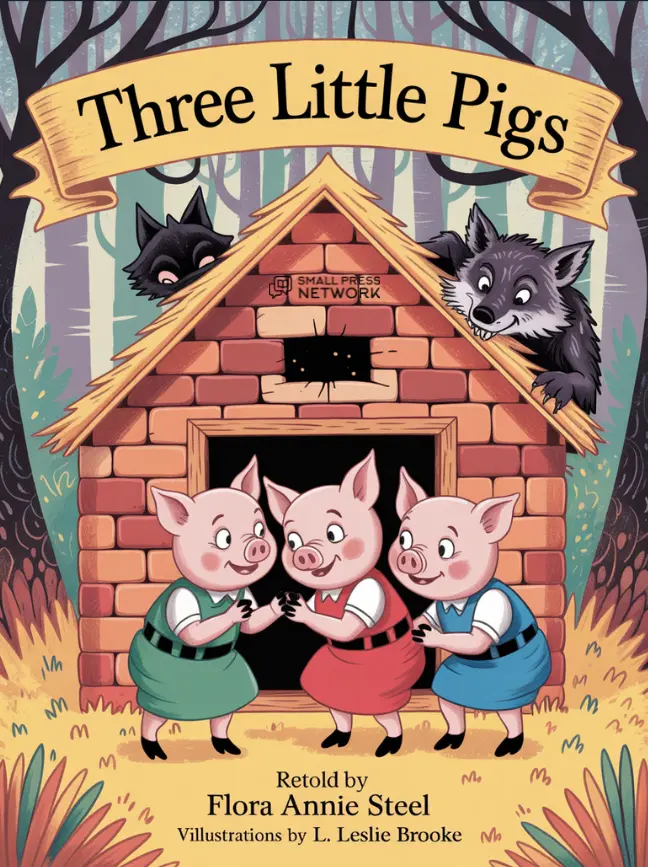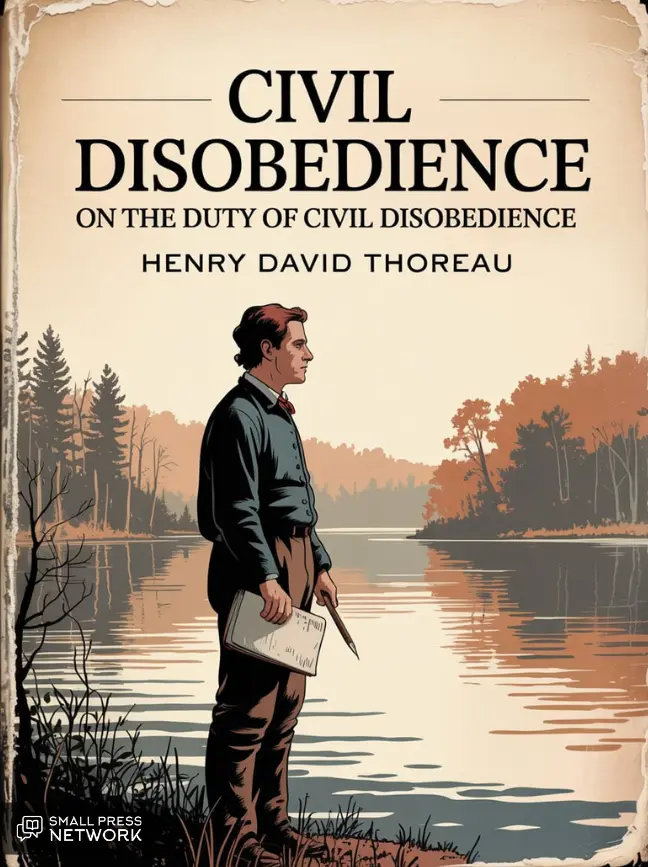927
Chapter XIII
The French evacuation began on the night between the sixth and seventh of October: kitchens and sheds were dismantled, carts loaded, and troops and baggage trains started.
At seven in the morning a French convoy in marching trim, wearing shakos and carrying muskets, knapsacks, and enormous sacks, stood in front of the sheds, and animated French talk mingled with curses sounded all along the lines.
In the shed everyone was ready, dressed, belted, shod, and only awaited the order to start.
The sick soldier, Sokolóv, pale and thin with dark shadows round his eyes, alone sat in his place barefoot and not dressed. His eyes, prominent from the emaciation of his face, gazed inquiringly at his comrades who were paying no attention to him, and he moaned regularly and quietly. It was evidently not so much his sufferings that caused him to moan (he had dysentery) as his fear and grief at being left alone.
Pierre, girt with a rope round his waist and wearing shoes Karatáev had made for him from some leather a French soldier had torn off a tea chest and brought to have his boots mended with, went up to the sick man and squatted down beside him.
“You know, Sokolóv, they are not all going away! They have a hospital here. You may be better off than we others,” said Pierre.
“O Lord! Oh, it will be the death of me! O Lord!” moaned the man in a louder voice.
“I’ll go and ask them again directly,” said Pierre, rising and going to the door of the shed.
Just as Pierre reached the door, the corporal who had offered him a pipe the day before came up to it with two soldiers. The corporal and soldiers were in marching kit with knapsacks and shakos that had metal straps, and these changed their familiar faces.
The corporal came, according to orders, to shut the door. The prisoners had to be counted before being let out.
“Corporal, what will they do with the sick man?…” Pierre began.
But even as he spoke he began to doubt whether this was the corporal he knew or a stranger, so unlike himself did the corporal seem at that moment. Moreover, just as Pierre was speaking a sharp rattle of drums was suddenly heard from both sides. The corporal frowned at Pierre’s words and, uttering some meaningless oaths, slammed the door. The shed became semidark, and the sharp rattle of the drums on two sides drowned the sick man’s groans.
“There it is!… It again!…” said Pierre to himself, and an involuntary shudder ran down his spine. In the corporal’s changed face, in the sound of his voice, in the stirring and deafening noise of the drums, he recognized that mysterious, callous force which compelled people against their will to kill their fellow men—that force the effect of which he had witnessed during the executions. To fear or to try to escape that force, to address entreaties or exhortations to those who served as its tools, was useless. Pierre knew this now. One had to wait and endure. He did not again go to the sick man, nor turn to look at him, but stood frowning by the door of the hut.
When that door was opened and the prisoners, crowding against one another like a flock of sheep, squeezed into the exit, Pierre pushed his way forward and approached that very captain who as the corporal had assured him was ready to do anything for him. The captain
928
was also in marching kit, and on his cold face appeared that same it which Pierre had recognized in the corporal’s words and in the roll of the drums.
“Pass on, pass on!” the captain reiterated, frowning sternly, and looking at the prisoners who thronged past him.
Pierre went up to him, though he knew his attempt would be vain.
“What now?” the officer asked with a cold look as if not recognizing Pierre.
Pierre told him about the sick man.
“He’ll manage to walk, devil take him!” said the captain. “Pass on, pass on!” he continued
without looking at Pierre.
“But he is dying,” Pierre again began.
“Be so good…” shouted the captain, frowning angrily.
“Dram-da-da-dam, dam-dam…” rattled the drums, and Pierre understood that this mysterious force completely controlled these men and that it was now useless to say any more.
The officer prisoners were separated from the soldiers and told to march in front. There were about thirty officers, with Pierre among them, and about three hundred men.
The officers, who had come from the other sheds, were all strangers to Pierre and much better dressed than he. They looked at him and at his shoes mistrustfully, as at an alien. Not far from him walked a fat major with a sallow, bloated, angry face, who was wearing a Kazán dressing gown tied round with a towel, and who evidently enjoyed the respect of his fellow prisoners. He kept one hand, in which he clasped his tobacco pouch, inside the bosom of his dressing gown and held the stem of his pipe firmly with the other. Panting and puffing, the major grumbled and growled at everybody because he thought he was being pushed and that they were all hurrying when they had nowhere to hurry to and were all surprised at something when there was nothing to be surprised at. Another, a thin little officer, was speaking to everyone, conjecturing where they were now being taken and how far they would get that day. An official in felt boots and wearing a commissariat uniform ran round from side to side and gazed at the ruins of Moscow, loudly announcing his observations as to what had been burned down and what this or that part of the city was that they could see. A third officer, who by his accent was a Pole, disputed with the commissariat officer, arguing that he was mistaken in his identification of the different wards of Moscow.
“What are you disputing about?” said the major angrily. “What does it matter whether it is St.
Nicholas or St. Blasius? You see it’s burned down, and there’s an end of it…. What are you pushing for? Isn’t the road wide enough?” said he, turning to a man behind him who was not pushing him at all.
“Oh, oh, oh! What have they done?” the prisoners on one side and another were heard saying as they gazed on the charred ruins. “All beyond the river, and Zúbova, and in the Krémlin….
Just look! There’s not half of it left. Yes, I told you—the whole quarter beyond the river, and so it is.”
“Well, you know it’s burned, so what’s the use of talking?” said the major.
As they passed near a church in the Khamóvniki (one of the few unburned quarters of Moscow) the whole mass of prisoners suddenly started to one side and exclamations of horror and disgust were heard.
“Ah, the villains! What heathens! Yes; dead, dead, so he is… And smeared with something!”
929
Pierre too drew near the church where the thing was that evoked these exclamations, and dimly made out something leaning against the palings surrounding the church. From the words of his comrades who saw better than he did, he found that this was the body of a man, set upright against the palings with its face smeared with soot.
“Go on! What the devil… Go on! Thirty thousand devils!…” the convoy guards began cursing and the French soldiers, with fresh virulence, drove away with their swords the crowd of prisoners who were gazing at the dead man.





